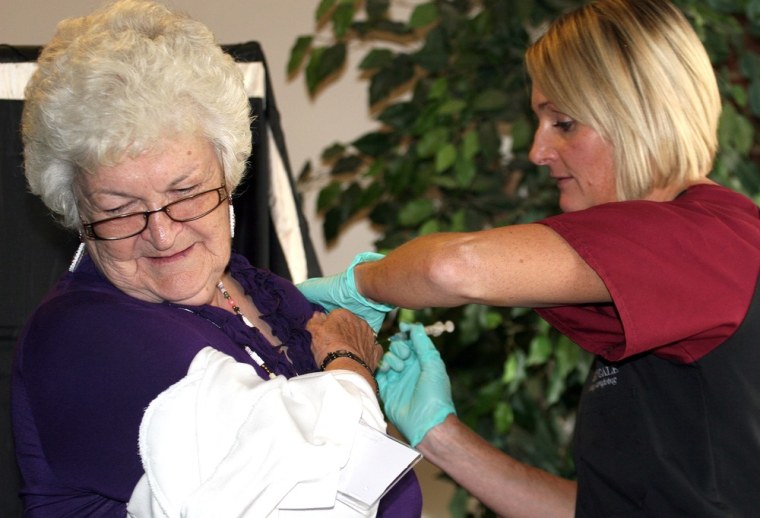If this year’s flu shot seemed like a bigger pain in the arm than last year’s, it might not be all in your head.
This year’s vaccine targets the same flu strains as last year’s. (That’s happened only eight times in the last 42 years.) So, thanks to some leftover antibodies from the 2010 vaccine, you might have a little more of an immune response around this year’s injection site, which could cause some tenderness, redness, and swelling, says infectious disease specialist William Schaffner, chair of preventive medicine at the Vanderbilt University School of Medicine in Nashville.
Don’t go thinking you can skip this year’s flu shot since it’s a repeat of last year’s, though. Immunity does wane over the course of the year, so the Centers for Disease Control and Prevention urges everyone ages 6 months of age and older to get vaccinated. True, a study out Wednesday found that the flu vaccine is less effective than previously thought, but it’s the best protection we’ve got.
If you haven’t gotten your flu shot yet, there are a few steps you could take to reduce the pain (and remember, reports that this year’s shot hurts more are not scientific, only anecdotal). You could try the new, smaller needle that injects the vaccine under the skin instead of into a muscle. Reportedly, people don’t feel a thing when it’s used. But the tiny needle’s pricier, and not all insurance plans will cover it.
Or you could take family practice doctor April Calderon’s advice. Before you go in for your flu shot, pop 400 milligrams of a non-steroidal anti-inflammatory drug, or NSAID, like ibuprofen (do not take it if you’re allergic or have other reasons to avoid NSAIDs).
“It will help offset some of the symptoms,” says Calderon, who practices at Scott and White’s Round Rock West Clinic in Texas.
Another thing: Try to keep your arm relaxed (I know, easier said than done). If you tense up your arm muscles, the shot might hurt more, Calderon says.
After you get your flu shot, she says, rub the injection area or move your arm around to help spread out the immune response. If necessary, an ice pack will help reduce the aching.
Of course, if you really have a thing about needles, you could inhale your flu vaccine in the form of the nasal spray called FluMist. But it’s approved only for people 2 to 49 years old, so if you’re not in that age range, you’re out of luck.
